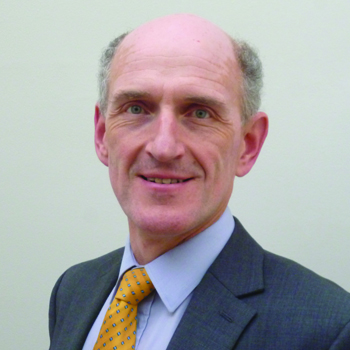GPs have a duty to discuss weight with patients – no matter how awkward it is


Cancer Research UK (CRUK) predicts that by 2043, obesity could overtake smoking as the biggest preventable cause of cancer in women, thanks to rising rates of obesity and falling numbers of people smoking.1
But only 15% of people spontaneously listed obesity as a risk factor for cancer when asked in a recent CRUK survey.2 GPs have a role in speaking to patients about overweight and obesity to raise awareness of the link with cancer and other conditions, and support weight management
Talking to a patient about being overweight is not easy. Patients have differing attitudes to their weight, and a GP’s advice can be heard quite differently depending on the person in front of them. However, concern that our advice might not be well received should not stop us from bringing up the topic. Raising awareness is about helping people make informed choices about their own health, not about stigmatising them or dictating how they should live.
It’s an issue for debate among GPs. CRUK’s obesity awareness campaign received some criticism from both the public and doctors earlier this year. However, a campaign evaluation found that the majority of people – 84% – agreed it was an important message, although a small number said they found it offensive.
I’ve found my patients to be receptive to a discussion and willing to make a change
Some of the criticism suggested the campaign was blaming individuals for their weight or shaming them into making changes in order to lose weight. But while the charity’s ultimate aim is to help change the environment to make it easier for everyone to maintain a healthy weight, it does have a role in informing the public about the link between obesity and cancers.
I’ve found my patients to be receptive to a discussion and willing to make a change, despite the challenges of short appointment times and weight not necessarily being their original reason for coming to see me.
However, a survey of 2,000 GPs and nurses showed that there are barriers to having conversations with patients about weight. GPs were likely to initiate a conversation only if their patient had an obese BMI, whereas nurses were prepared to discuss weight with people with a lower BMI. GPs were also less likely than nurses to give weight management advice to patients who are obese – although 72% of us still did so.
GP barriers
The main barriers GPs reported were being overloaded with work, a lack of relevant training, and the absence of appropriate services to which they can refer patients – no surprises there. Clearly health services need to address these, but there are tools available to help support conversations with patients, such as the RCGP/CRUK module on behaviour change and cancer prevention, and Public Health England’s ‘Let’s Talk About Weight’ resource.3
Cancer is not the only health risk associated with carrying excess weight; there are many others and it is vital we help ensure people are aware of them. Although we may fear upsetting patients – or worse, generating a complaint – there is emerging evidence that very brief advice about weight makes a significant impact, and less than 2% of patients felt the advice was inappropriate.4
We know it’s difficult to maintain a healthy weight when we’re bombarded with advertising campaigns encouraging us to eat more junk food and price promotions on unhealthy food. That’s why many organisations, including CRUK, are campaigning for the Government to do more. We need to improve our environment to make it easier to be healthy, starting by regulating junk food marketing aimed at children and restricting price promotions on products high in fat, salt and sugar.
In the meantime, we can do our bit by speaking to our patients about the importance of getting to a healthy weight. Strategies to address weight must be tailored to the individual and achieved in a sustainable way through a balanced diet and moving more.
It’s important that patients are aware of all the risks of being overweight or obese so they can make informed choices about their health and lifestyle.
Dr Richard Roope is a GP in Fareham and Cancer Research UK’s GP expert
References
1 Cancer Research UK. When could overweight and obesity overtake smoking as the biggest cause of cancer in the UK? September 2018. tinyurl.com/CRUK-obesity
2 Cancer Research UK. Cancer awareness measure. 2017. tinyurl.com/CRUK-awareness2017
3 Public Health England. Adult weight management: short conversations with patients. tinyurl.com/PHE-weight
4 Aveyard, P et al. Screening and brief intervention for obesity in primary care. The Lancet 2016; 388: 2492-2500 tinyurl.com/aveyard-obesity
Pulse July survey
Take our July 2025 survey to potentially win £1.000 worth of tokens

Visit Pulse Reference for details on 140 symptoms, including easily searchable symptoms and categories, offering you a free platform to check symptoms and receive potential diagnoses during consultations.










